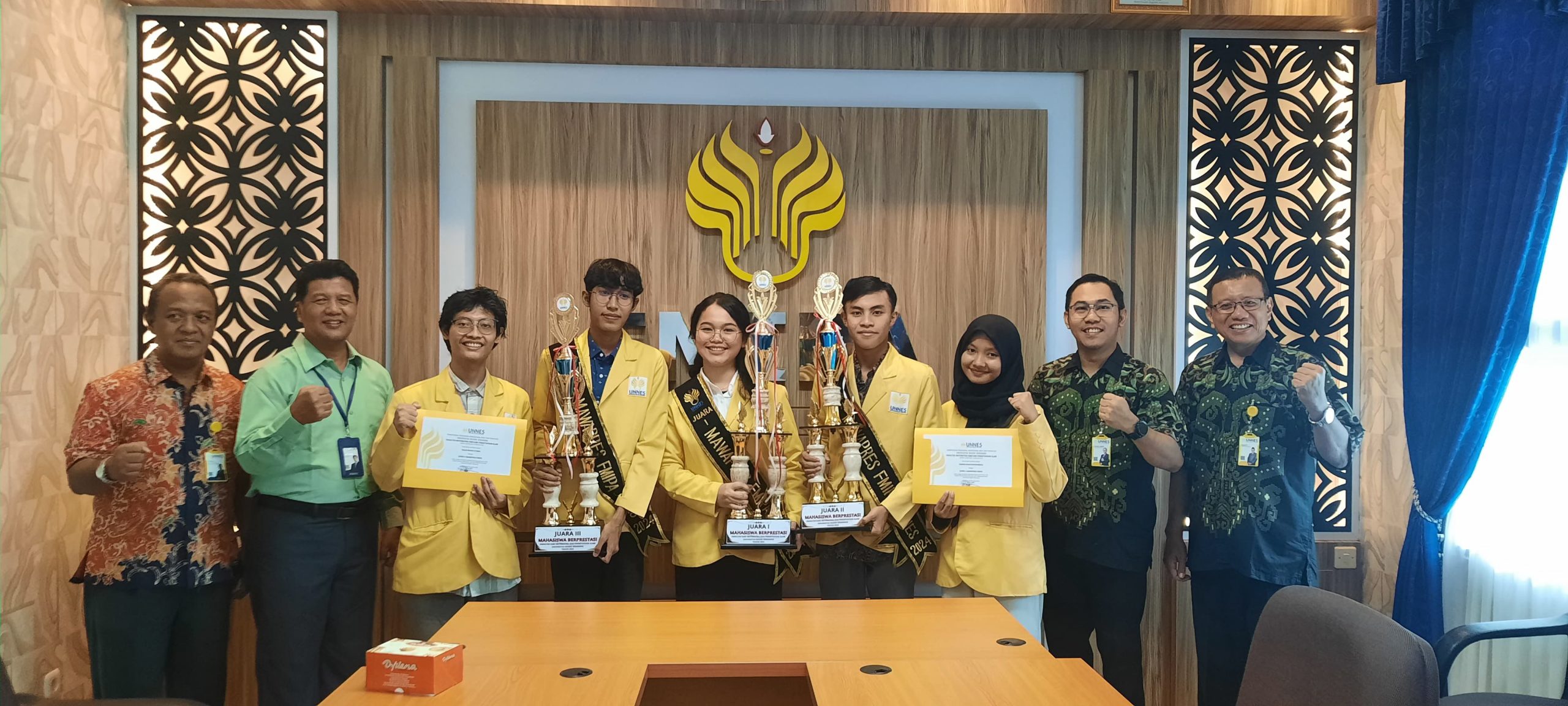
Faizal Daffa’ Mu’afiy (4411421006) – Biology student at Biology Department, FMIPA UNNES, active in various organizational activities, Young Staff of the Creative Economy Department, BEM FMIPA UNNES 2022, and Member of the Promotion and Marketing Division, Geniune Fermentation Club (GFC).
Suppervised by Dr. Ir. Pramesti Dewi, M.Si.
Awareness in the community is needed to be able to overcome the problem of landslides that often occur.
The country of Indonesia is included as one of the countries that have a vulnerability to hydrometeorological disasters, hydrometeorology itself is a natural disaster that can occur due to changes in climate and weather. Some disasters can occur because of threats and vulnerabilities to the community to be able to overcome disasters, one type of disaster in Indonesia that has the potential to damage the environment, eliminate property, and can also cause casualties is a landslide disaster. The cause of the Indonesian state has a fairly high concentration of natural disasters, basically nothing more than a reflection of natural phenomena that are geographically typical for the region of our homeland. The cause is obtained because Indonesia belongs to the island country where the three major plates of the world meet, including the Indo-Australian Plate, Eurasian Plate, and Pacific Plate. Banjarnegara is a district that has beautiful mountainous areas, cultural diversity, and abundant harvests, but Banjarnegara is a district that has a high risk of landslides because Banjarnegara has mountainous areas that are vulnerable to landslides (more than 70% of the area in Banjarnegara is vulnerable to landslides).
Banjarnegara is a district that has beautiful mountainous areas, cultural diversity, and abundant harvests, but Banjarnegara is a district that has a high risk of landslides because Banjarnegara has mountainous areas that are vulnerable to landslides (more than 70% of the area in Banjarnegara is vulnerable to landslides).
Cases of landslide natural disasters that have occurred in Banjarnegara, Central Java.
Landslides or can natural disasters are called land movements, from year to year more and more often occur in Indonesia, especially during the rainy season. The high potential for landslides is caused by tectonic conditions that form high morphology, faults, and volcanic rocks that are easily fragile and supported by the climate in Indonesia in the form of a wet tropical climate. The cause of frequent landslides is a combination of anthropogenic factors, landslides themselves can claim lives and property losses. Banjarnegara is one of the areas in Indonesia that is included in landslide-prone areas, one of the landslide events that occurred in Banjarnegara was the Jemblung landslide, was a landslide disaster that occurred on December 12, 2014, in Jemblung Hamlet, Sampang Village, Karangkobar District, Banjarnegara Regency, Central Java. This incident occurred on the hillside of “Lele lake” at around 5:30 pm and as a result, hit a hamlet inhabited by about 300 people from 53 head of families, there were as many as 15 survivors in the condition of injuries, and 108 people died buried among which 95 people were found and 13 others were declared missing. The cause of the landslide that occurred in Jemblung hamlet, Sampang village, Karangkobar district, Banjarnegara regency is, that the rain that occurred continued to erode for two days, which caused the hill in Jemblung hamlet to experience landslides and swept the hamlet which has a population of 300 people.

As for the topographical side, Jemblung hamlet has a high and steep hill and rarely seen trees that grow on the hill, on the hill in Jemblung hamlet there is also no alienated land, it is the cause of landslide natural disasters in Jemblung hamlet, Sampang village, Karangkobar district, Banjarnegara regency. It is necessary for the role of the community to work together so that in the future the landslide natural disaster that has occurred, not be repeated.
A solution that can be displayed for landslide natural disasters
Landslide management itself urgently needs the active role of each community to stand shoulder to shoulder in tackling landslide disasters, because the community is those who feel the impact of the disaster itself, so it is necessary to know the solutions. If disaster management does not involve community participation, then the community will not have self-readiness to face disaster hazards that can occur at any time. Here are some solutions to be done to prevent landslides. Solutions that can be done to overcome landslide disasters include, the first to always avoid the construction of settlements under the slopes because the area under the slope is an area that is prone to landslides and is not recommended to carry out development activities in the area. Then the second is, to reduce the rate of slope seizures by cultivating terracing land in the slope area because terracing is done to reduce the length of the slope and restrain or minimize surface flow so that water can seep into the ground. The third solution is to engage a good slope drain to do to prevent water from flowing from the slope to get out of the slope. The solution is useful for maintaining the slope when it rains. The fourth solution is to create a retaining building so that there is no movement of land that is the cause of landslides. Then is tree planting or reforestation, the planted tree is expected to be a tree with deep roots and not too tight a planting distance including the innermost short plants that can maintain water drainage. Then is the activity of relocation of landslide-prone areas, although this activity requires large funds, this activity is an important effort that must be done by the government, to minimize natural disasters that can instantly claim lives and large losses. Then the last solution is to carry out a warning system or landslide warning technology, by making a ground movement detection device that is at risk of landslides in landslide areas, the hope is to minimize the occurrence of natural disasters, including landslide natural disasters. Warnings before landslides can be done to residents so that residents can take disaster mitigation measures. The hope is that these solutions can be applied by all communities so that the potential for natural disasters can be minimized.




